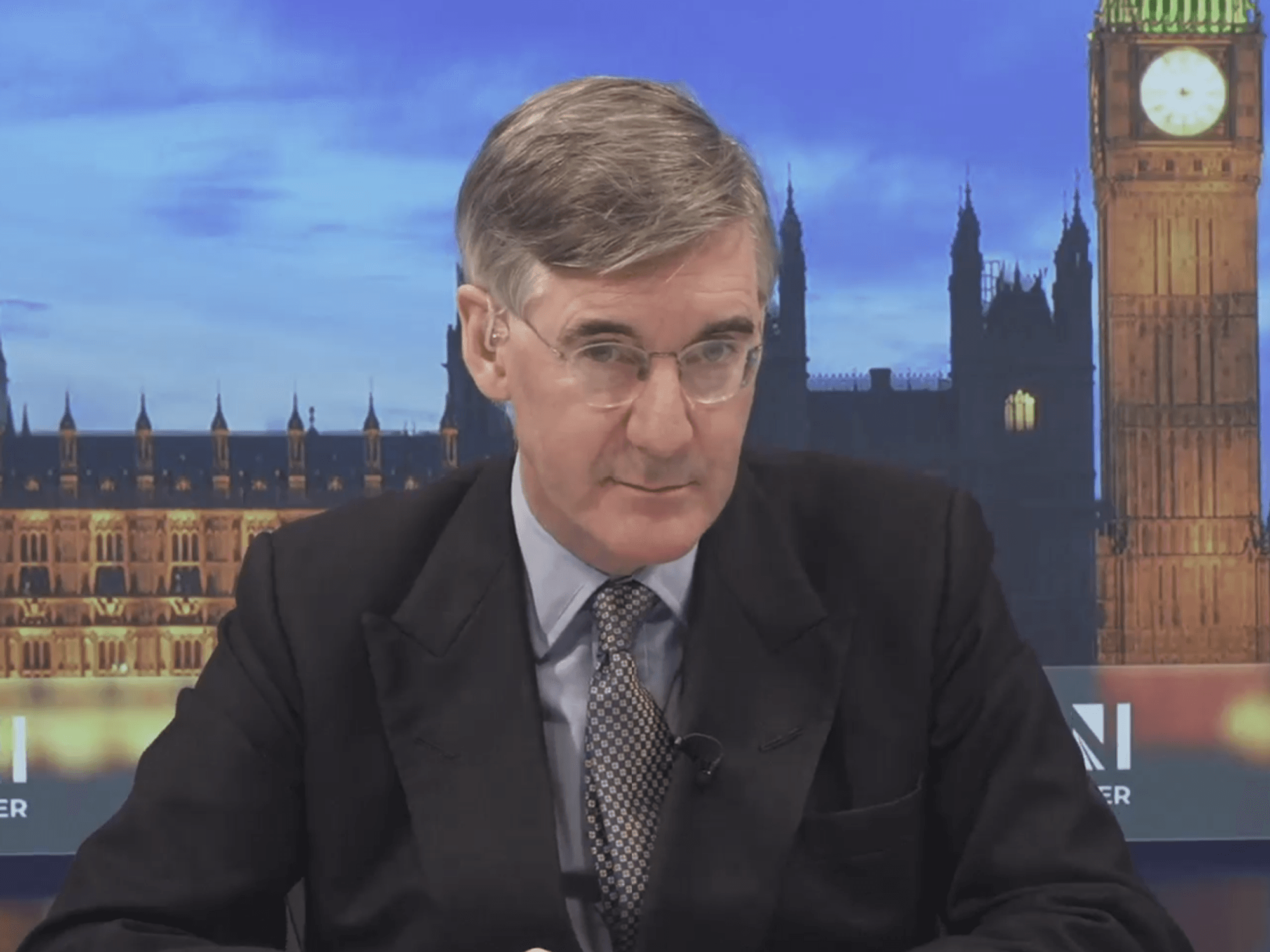I am not Rachel Reeves' biggest fan, but as a former MP, I will defend her on this front - Miriam Cates

Alex Armstrong and Miriam Cates clash over Rachel Reeves rental mishap |
GB
It’s absurd to expect that an MP should know UK law inside out, writes GB News Presenter Miriam Cates
Don't Miss
Most Read
Trending on GB News
This morning, the Chancellor made a keynote speech in Downing Street with the intention of quelling media and market concerns ahead of the Budget on 26th November.
It seems her intervention may have had the opposite effect, ramping up speculation about potential tax rises. Rachel Reeves is no stranger to bad headlines and has rarely been out of the news in recent weeks. Comments and criticisms about her handling of the economy are par for the course.
Yet last week the Chancellor hit the front pages for a different reason, and the reaction demonstrated exactly why British politics has become so lacking in talent.
On Wednesday, it emerged that Reeves and her husband Nick Joicey failed to obtain the correct licence when they rented out their family property in Southwark last year.
The Prime Minister swiftly declared full confidence in Reeves, and ethics commissioner Sir Laurie Magnus said he does not believe an investigation is necessary.
Yet across the political spectrum and throughout the media, there are continuing calls for Reeves to resign. I can think of many reasons why the Chancellor might not be up to the job of overseeing the nation’s finances, but this minor private and accidental error should not be one of them.
 I am not Rachel Reeves' biggest fan, but as a former MP, I will defend her on this front - Miriam Cates |
I am not Rachel Reeves' biggest fan, but as a former MP, I will defend her on this front - Miriam Cates | Getty Images
In fact, the outrage over this non-scandal goes some way to explaining why Britain is now so lacking in the kind of inspirational, courageous political leadership that we saw in the past. Expecting our politicians to be perfect - in both public and private - is driving people with interesting backgrounds and colourful character types out of politics.
The reaction to Reeves’ error also demonstrates a fundamental lack of understanding about the ordinariness of many politicians' lives, and how difficult it can be to juggle private affairs with public service.
Those who accuse Reeves of an unforgivable mistake should ask themselves what exactly the Chancellor had to gain by failing to purchase the rental licence in question.
For just £900 - less than a third of one month’s rental income - Reeves would have saved herself not only the disastrous publicity of the last week but also the potentially far more significant expense of having to repay a year’s worth of rent (over £35,000) to her tenants and a possible prosecution by Southwark council. Very obviously, this was not a deliberate omission but an inadvertent error.
‘Ah,’ say her critics, ‘but Reeves is the Chancellor of the Exchequer! She should not be making mistakes like this!’ But surely the opposite is true. The more high-pressure a person’s job, the more hours they work, the less time they have for domestic affairs.
Reeves left the arrangements for the property rental to her husband, who was advised by his agent that a certificate was needed. The agent promised - but failed - to purchase the certificate, an error for which the company has apologised.
Why would - or should - Rachel Reeves have been aware of any of this?
Would we rather the Chancellor spend her very limited spare time asking her husband detailed questions about the minutiae of their life admin or giving full attention to her very important job? Rachel Reeves may be a senior cabinet member, but she doesn’t have any more hours in the day than the rest of us.
I was an MP for four and a half years, and during that time, I had almost no capacity for domestic administration. Even though I was just a back bencher - I never held any ministerial role - I found that my workload was such that I simply didn’t have the time to check on things such as our home and car insurance, mortgage arrangements, etc.
My husband did - and still does - a brilliant job of these things. But if he had made a mistake or was badly advised, I would know nothing about it. I could, of course, have chosen to spend less time representing and working for my constituents and more time on private matters. But that hardly seems a good use of time where taxpayers - and voters - are concerned.
I cannot imagine the pressure that Reeves and her husband are under. In addition to their high-stress jobs, they have two school-age children, to whom they will rightly want to devote as much time as possible.
There are many accountants and estate agents in the world; children have just one mother and father, and childhood is short.
The other misconception circulating in the press is that because Reeves is a Chancellor, she should ‘know the law’. But which law exactly? There are so many laws in the UK that there is no definitive count or even an estimation of the size of the statute book.
There are 100,000 statutory instruments alone. No one - not even a top lawyer - knows the ‘whole law’.
It’s absurd to expect that an MP, especially one with no legal background, should know UK law inside out, especially when it comes to obscure property licenses that are only applicable in a small number of UK boroughs. Do we really only want legal boffins in parliament? Or should the House of Commons be open to intelligent and capable people from all walks of life?
None of this is to say that Rachel Reeves is a good Chancellor of the Exchequer. Her performance this morning showed a worrying lack of understanding about the long-term causes of Britain’s stagnation.
Even if Reeves was an economic heavyweight, Labour’s left-wing backbenchers simply would not allow her to cut spending and taxation enough to get the economy growing again.
But the reason that so many 21st-century politicians seem bland and technocratic is that more colourful and independently-minded people have been put off politics altogether by the media’s - and the public’s - obsession with bringing leaders down over the tiniest mistakes.
In the past, many MPs used to serve in Parliament for decades, allowing them to build up vital knowledge and experience that was crucial in equipping them for public service. Margaret Thatcher was an MP for 16 years before becoming leader of the Conservative Party, and 33 years in total.
Tony Blair sat in Parliament for a total of 24 years. Churchill served for an astonishing 63 years. Now the average tenure of an MP is just eight years.
Keir Starmer has only been in Parliament since 2015, Badenoch since 2017. We all lose out when politics becomes so unappealing - and so destructive to an individual’s family and private lives - that good people just can’t stay the course.
The whole point of democracy is that we, the ordinary people, are represented by other ordinary people rather than aristocrats or autocrats, as in the past. MPs and cabinet ministers are not supposed to be perfect or even to be ‘better’ than the rest of us.
We elect them to make laws in our national interest, not to be shining examples of personal virtue or private administration.
Many of the great leaders in Britain’s past were guilty of all sorts of misdemeanours and even crimes. But they made Britain great through their courage and ingenuity.
If we ever want leaders like that again, we must stop obsessing about MPs’ minor foibles and understand that they - like us - have complicated lives and will make mistakes from time to time.
Great leaders are those who have learned from their mistakes, something that is completely impossible if ministers are forced to resign the minute they put a foot wrong.
More From GB News










